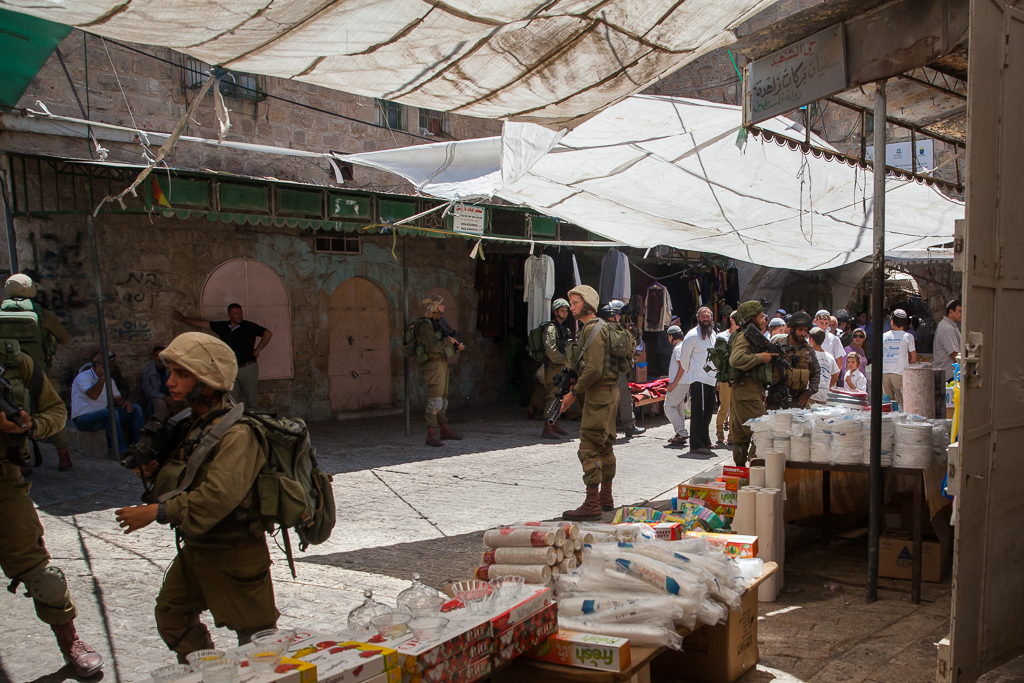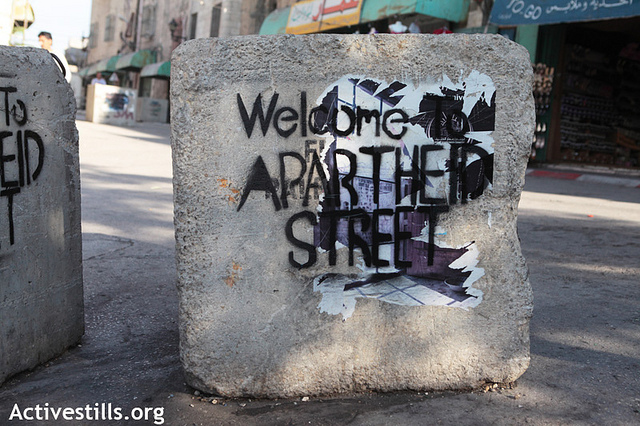Tag: Freedom of movement
-
Israeli forces escort illegal settlers through al-Khalil (Hebron) old town as tensions rise
4th July 2016 | International Solidarity Movement, al-Khalil team | Hebron, occupied Palestine On Saturday morning, less than 24 hours after Israeli forces implemented a discriminatory siege on Hebron and less than 12 hours after Israeli forces entered the H1, Palestinian controlled areas of the West Bank’s most populous city, a group of illegal settlers were…
-
Continuous restrictions of the freedom of religion in Hebron
21st June 2016 | International Solidarity Movement, al-Khalil team | Hebron, occupied Palestine Today, 21st June 2016, Israeli forces delayed and stopped several Palestinians on their way to noon-prayer at Ibrahimi mosque in occupied al-Khalil (Hebron). During the last few days, Israeli forces have been stopping, checking and delaying Palestinians at several checkpoints in the…
-
ACT NOW ! Put an end to the ‘Closed Military Zone’ in Tel Rumeida and Shuhada Street, Hebron
December 13th, 2015 | International Solidarity Movement | Action Alert The undersigned organisations are calling on the international community to take immediate action regarding the continuous closure of the Tel Rumeida neighborhood and the part of Shuhada Street that has remained accessible to Palestinian residents since the Ibrahimi mosque massacre in 1994, in occupied al-Khalil…



